Toyota president and CEO Akio Toyoda has doubled down on his enthusiasm for hydrogen combustion technology, after taking to the wheel of the flag-bearing Toyota GR Yaris H2 prototype at WRC rally Belgium over the weekend.
The keen racer demonstrated the potential of the specially adapted prototype – a hydrogen-fuelled, combustion-engined concept version of the brand's acclaimed four-wheel-drive hot hatchback – in Ypres, with four-time WRC champion Juha Kankkunen serving as co-driver. It was the first time Toyota has deployed a hydrogen-combustion prototype on track outside of Japan.
Following the run (shown on video, below), Toyoda said: "I am grateful to Juha for his courtesy in allowing me to drive. He guided me in sync with my driving, making me feel comfortable. The roads were tough―not only slippery but also narrow, and their surfaces seemed to change from moment to moment.
"They were like the roads used in Rally Japan, and it was a good chance to think about races with spectators in mind. We also had a Toyota Mirai at the venue demonstrating external power supply, and I believe that, together with driving using a hydrogen engine, we were able to highlight in Europe the potential of hydrogen as an option for achieving carbon neutrality."
Akio's driving was great. And the hydrogen engine put out solid torque, making it no different from a gasoline engine. Because they emit zero CO2, I believe hydrogen engines will become one of the options for achieving carbon neutrality not only in the world of motorsports but also in the world of everyday cars."
Toyota has been testing hydrogen-combustion technology for several months now, using a lightly modified Toyota Corolla touring car – which uses a hydrogen-fuelled version of the GR Yaris's 1.6-litre turbo three-pot – in Japan's Super Taikyu race series and the Fuji 24 Hours.
Hydrogen-combustion technology, Toyota says, allows cars to become zero-emission relatively affordably as it allows manufacturers to exploit "existing internal combustion engine know-how and manufacturing investment".
Using this technology, Toyota's Europe CEO Matt Harrison said, would allow Toyota to "deliver almost zero tailpipe emissions without electrification, but it does so whilst retaining the things which fans love most about race cars – the speed and the noise."
"Music to the ears," he said, "especially to those of a petrolhead."

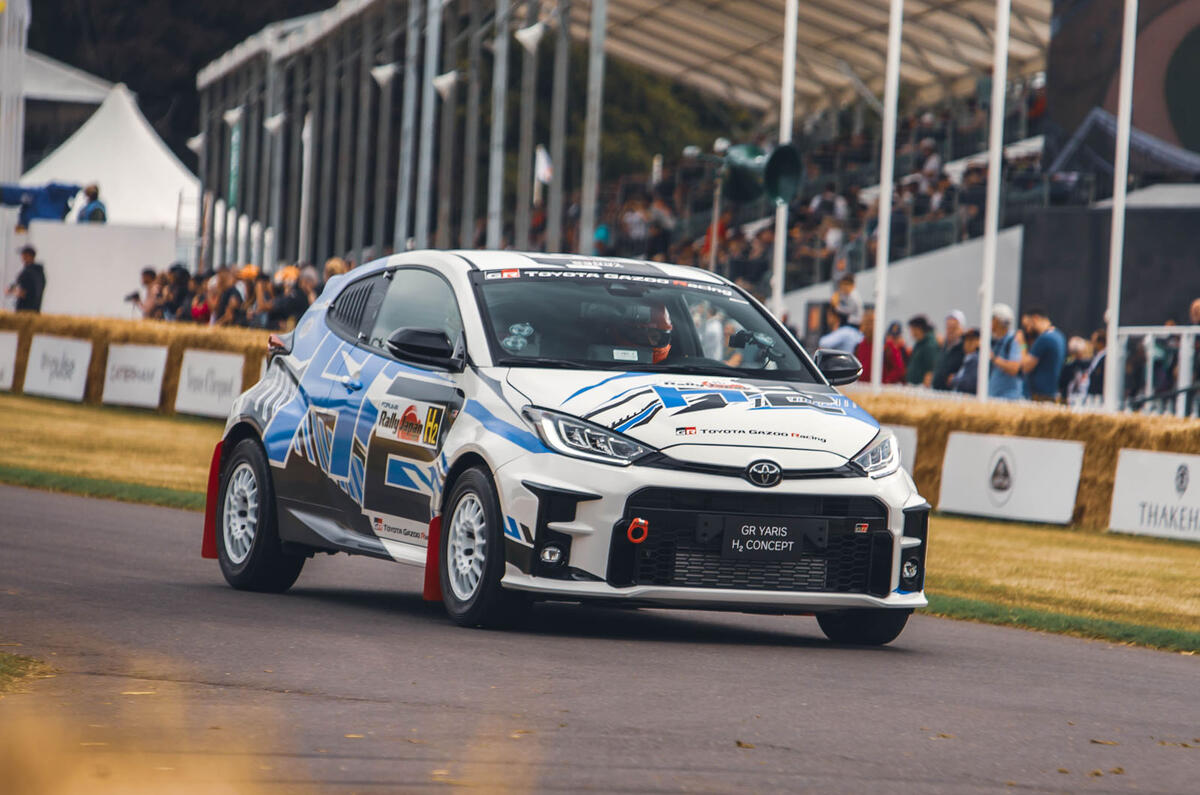
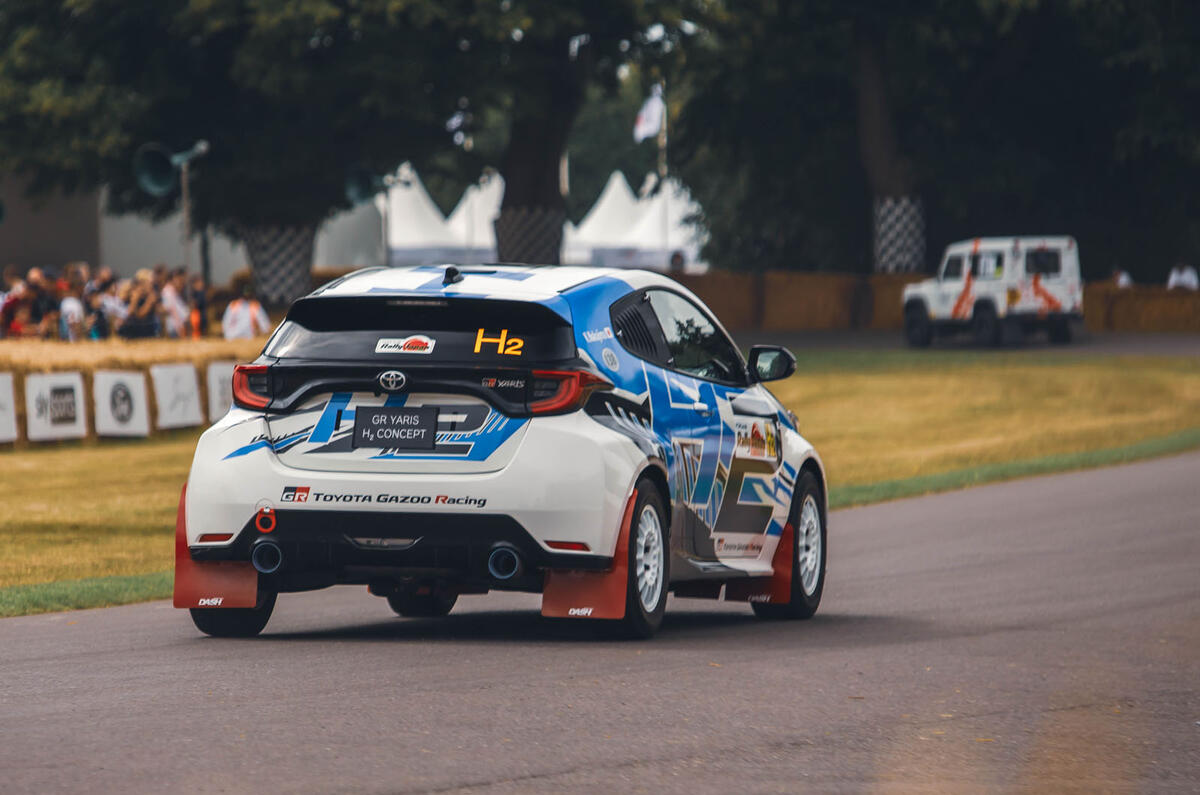
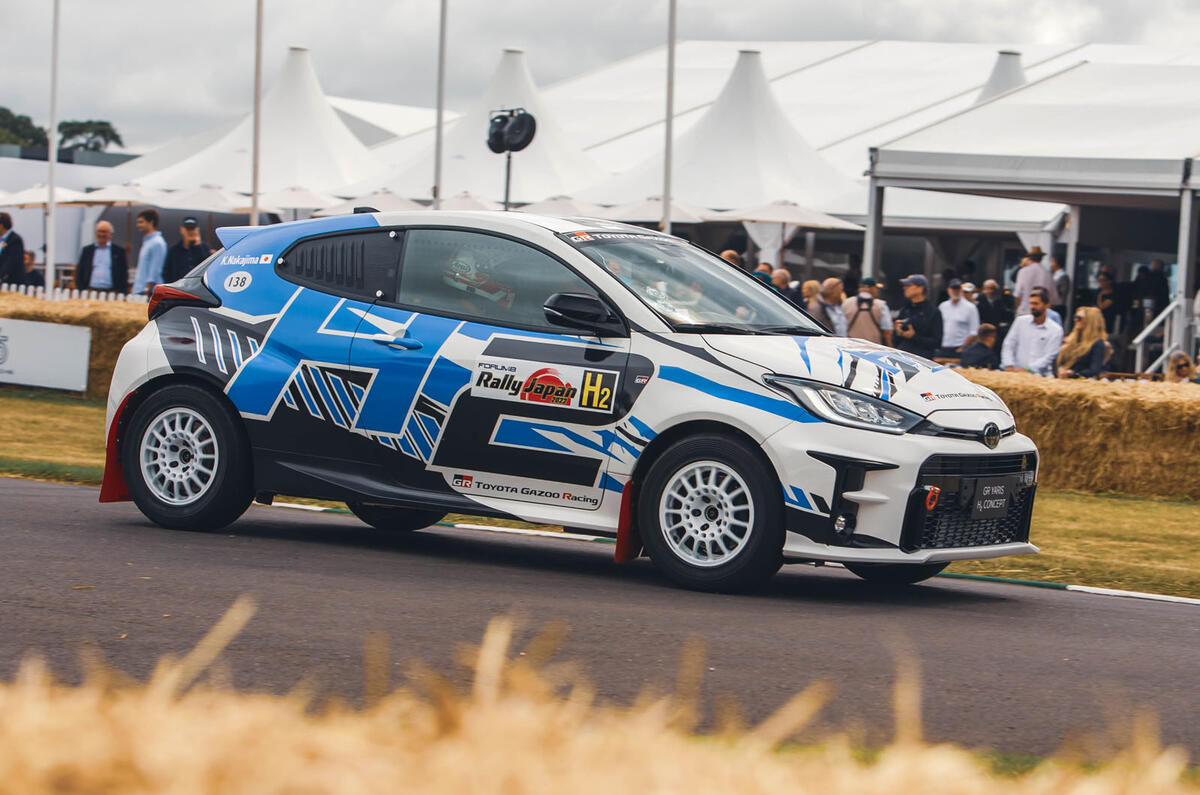
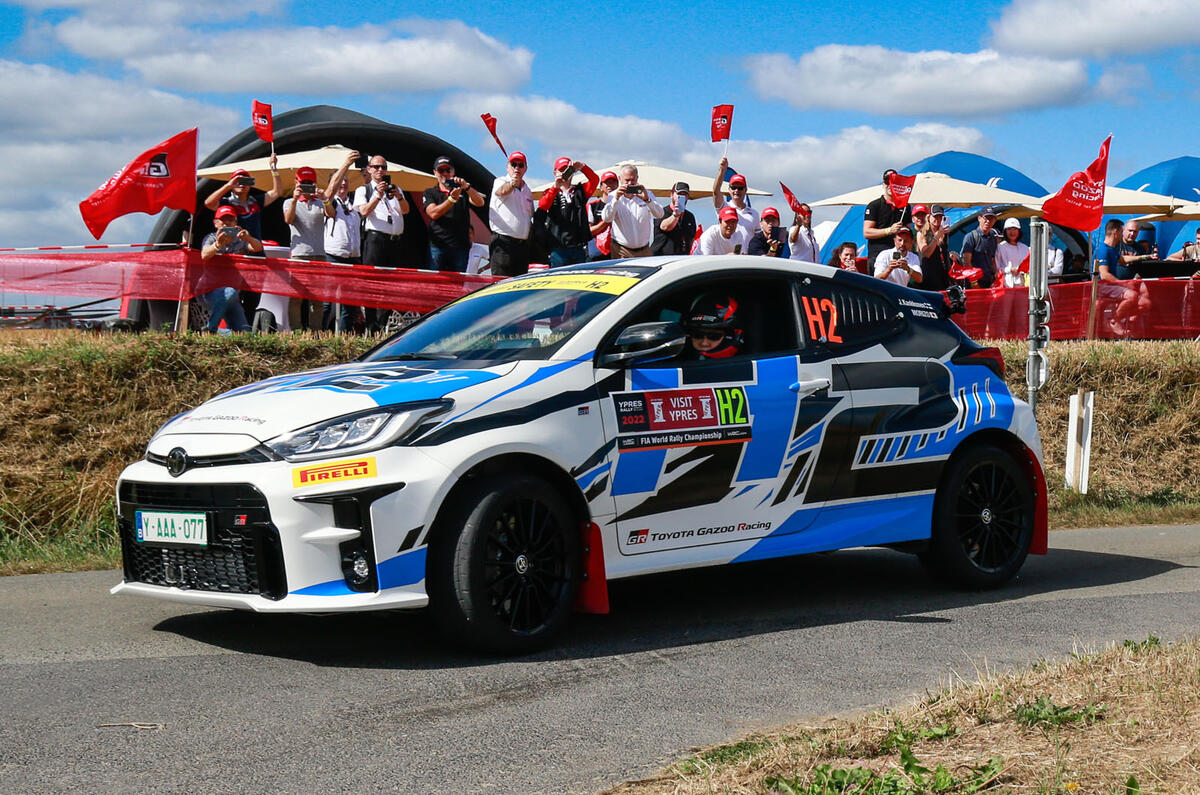
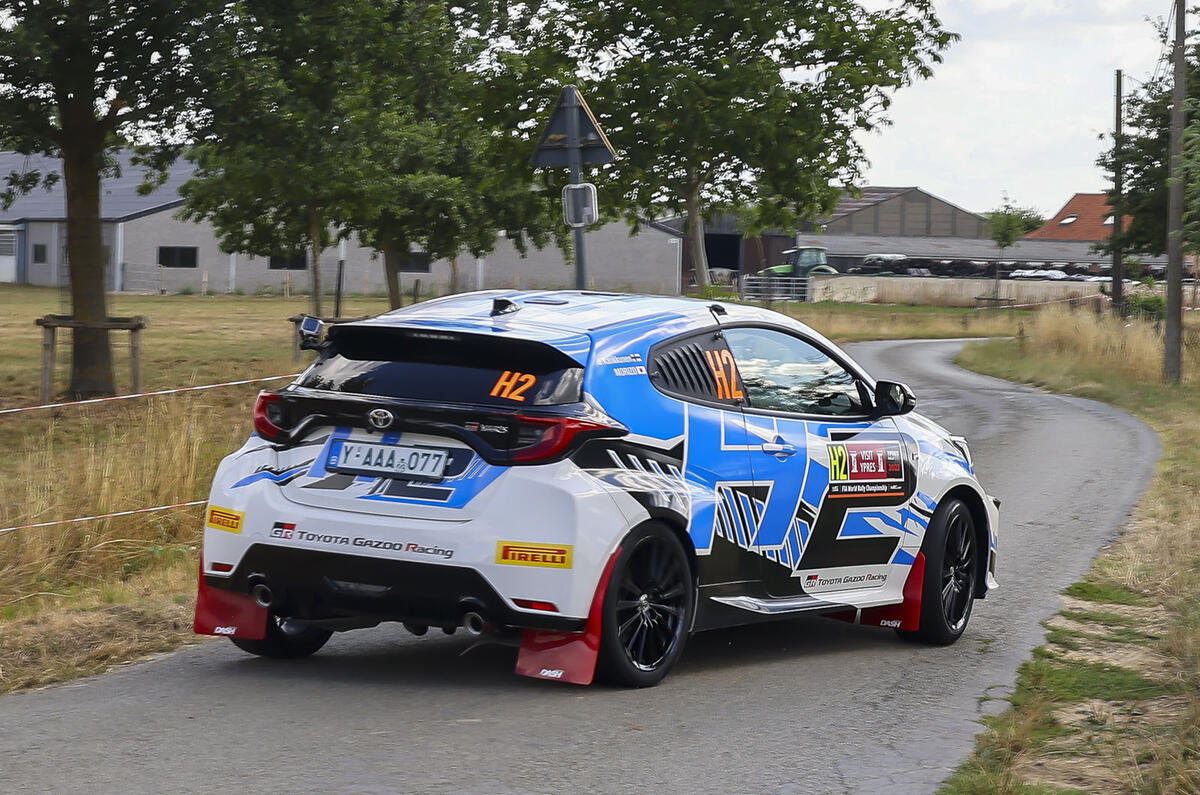
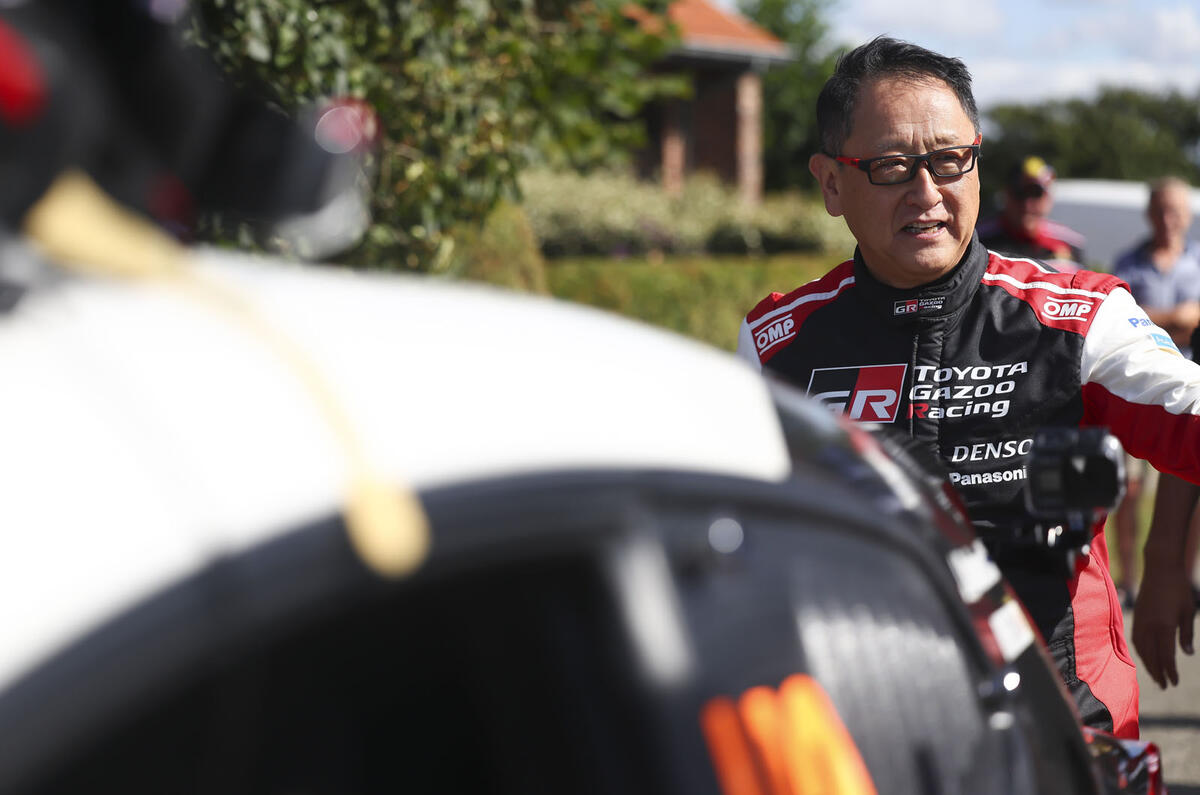

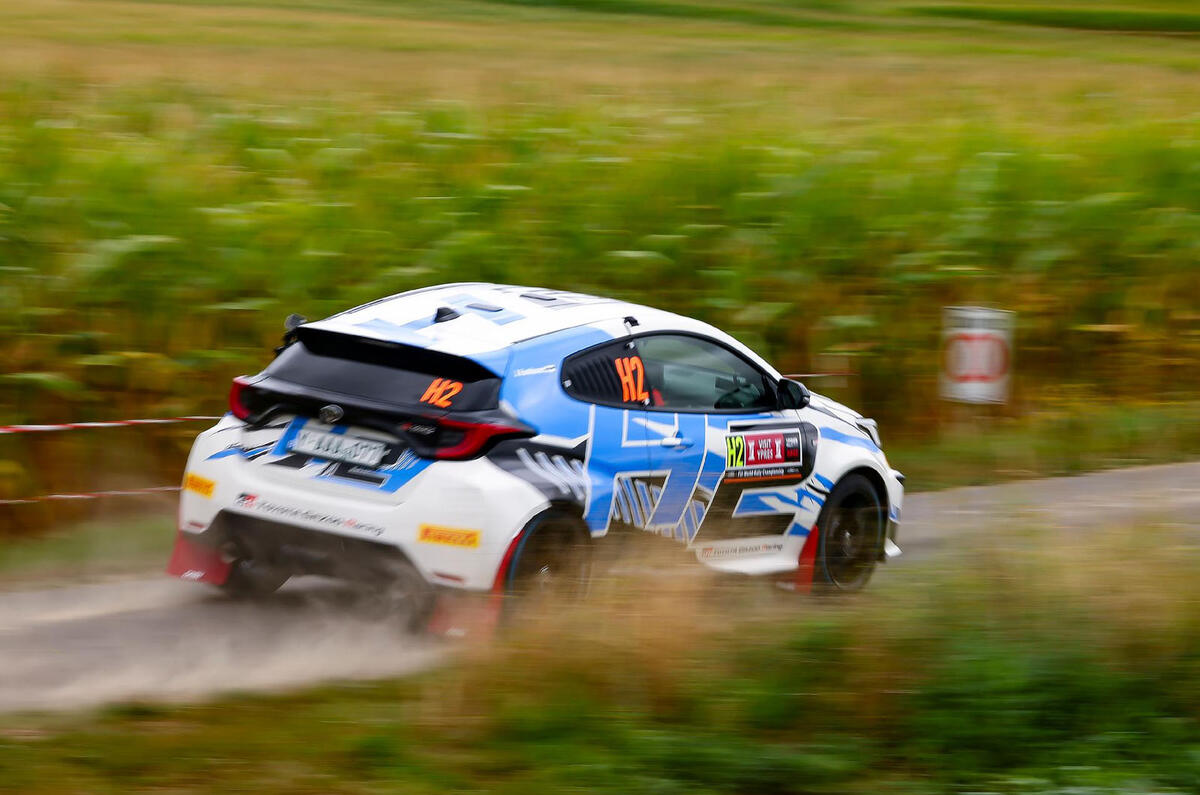
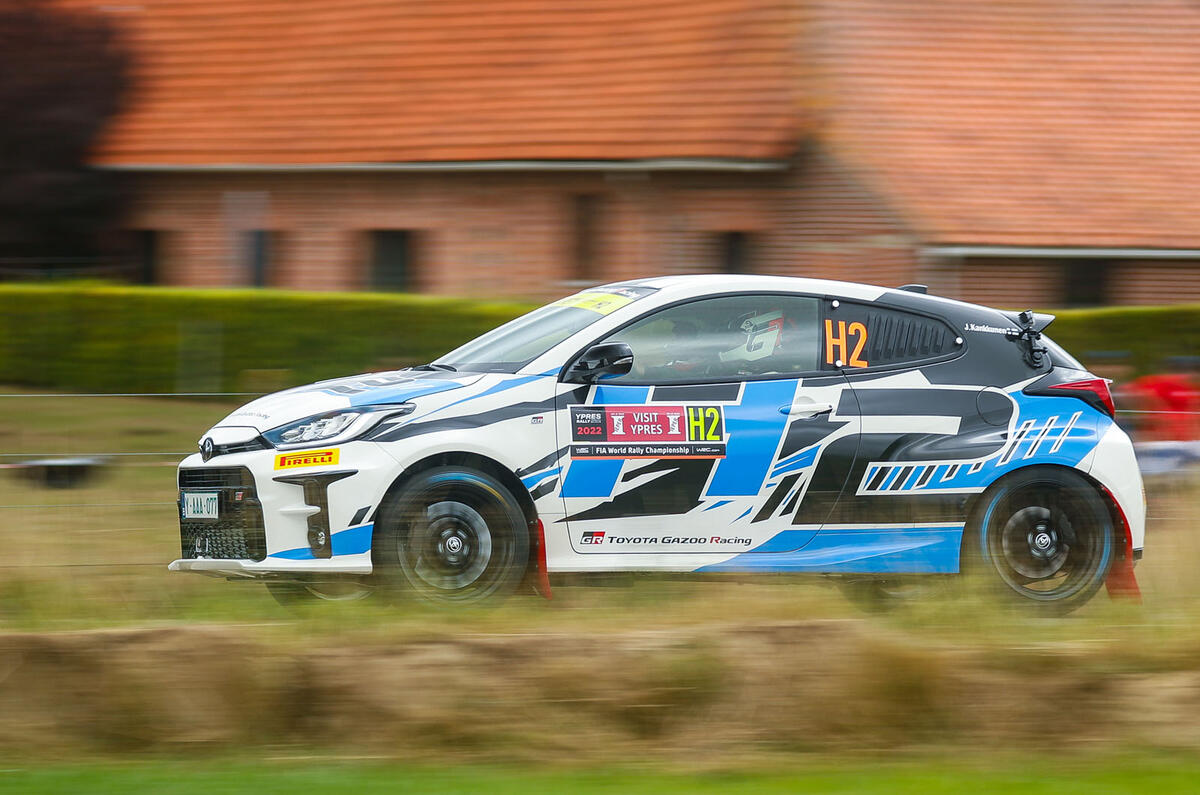
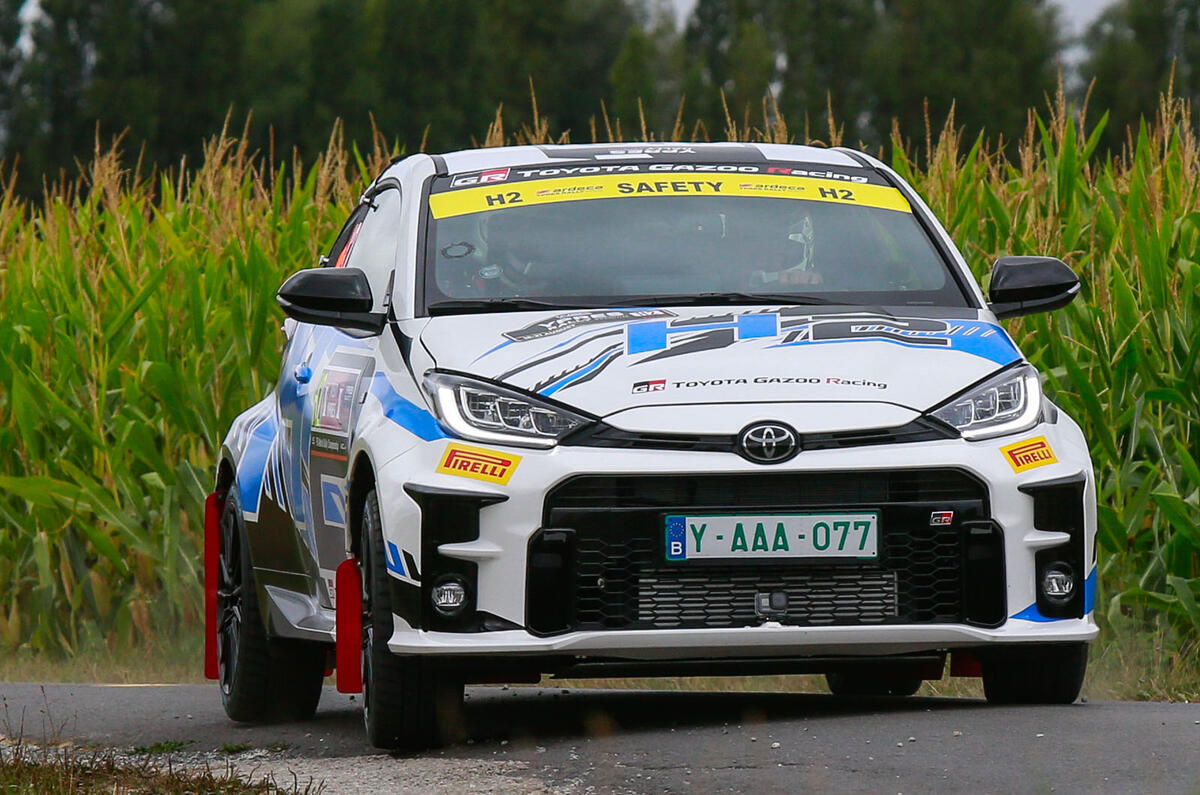

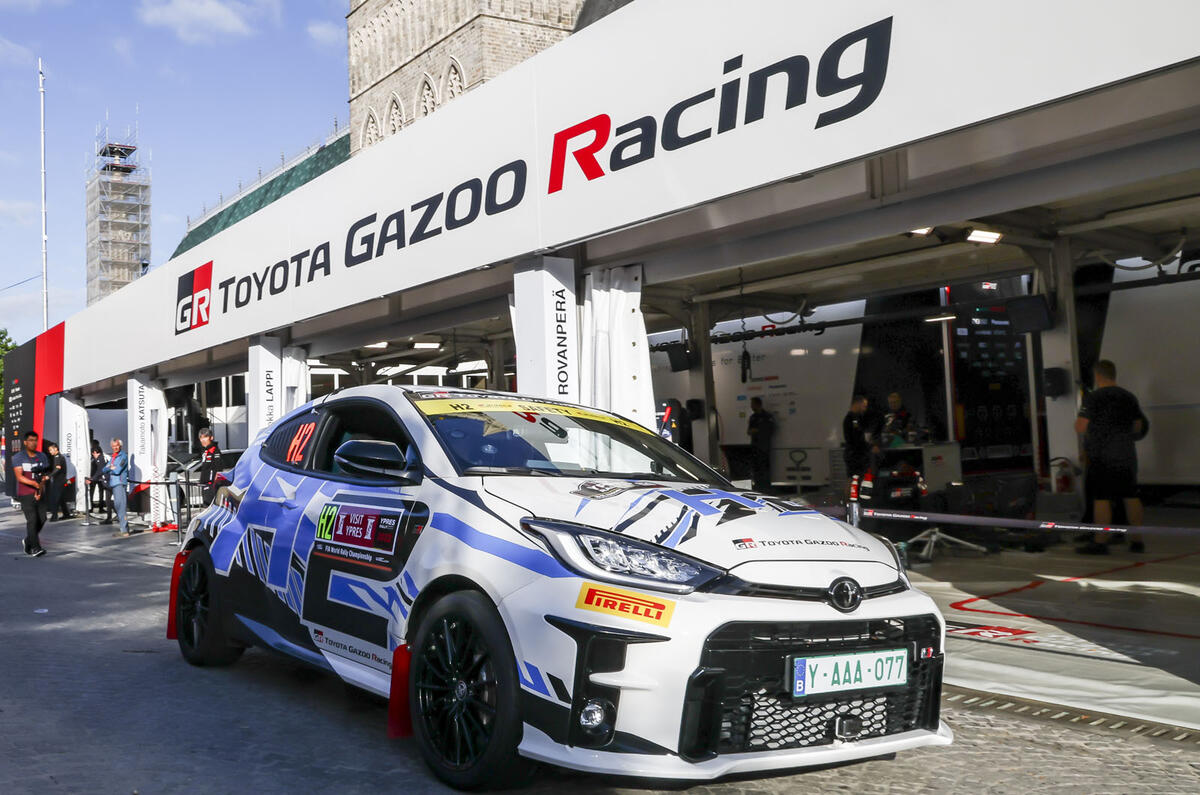

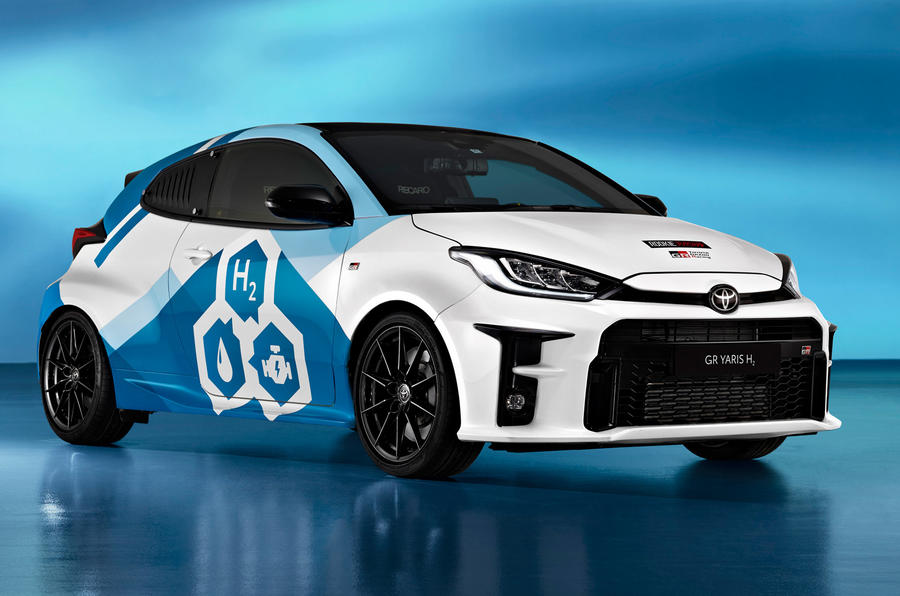
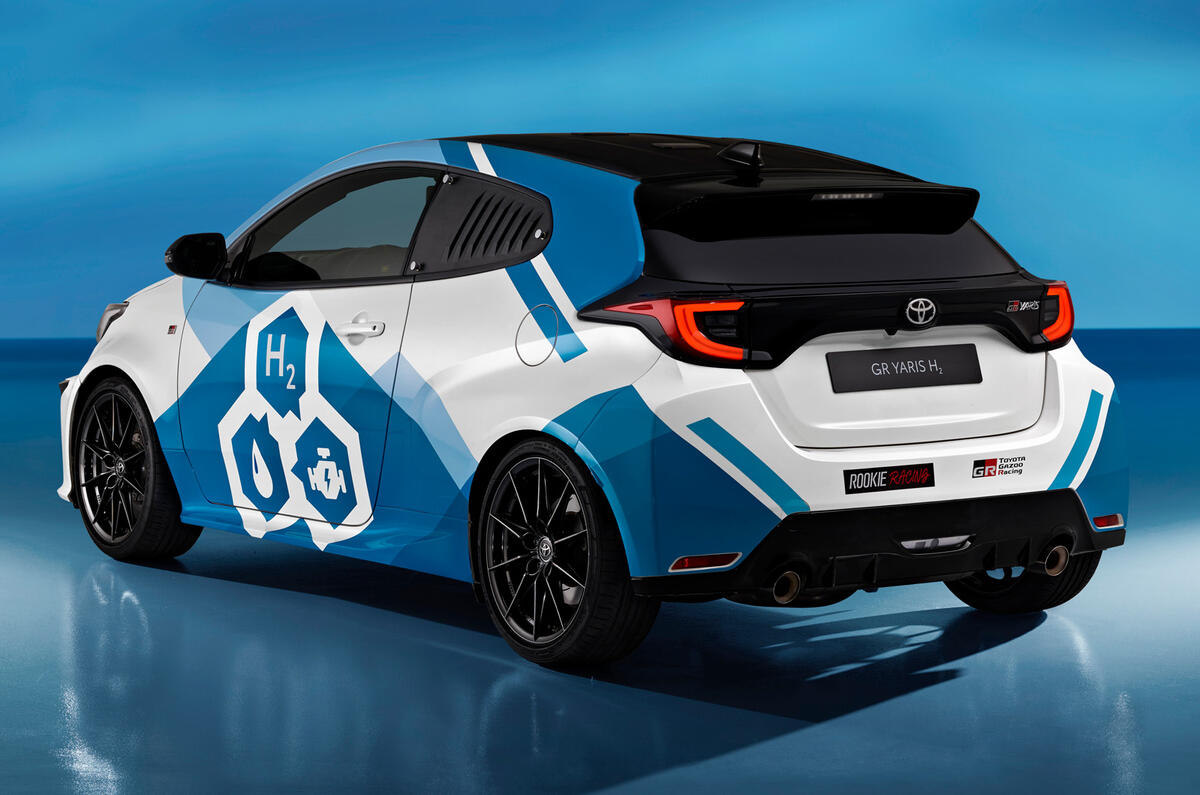
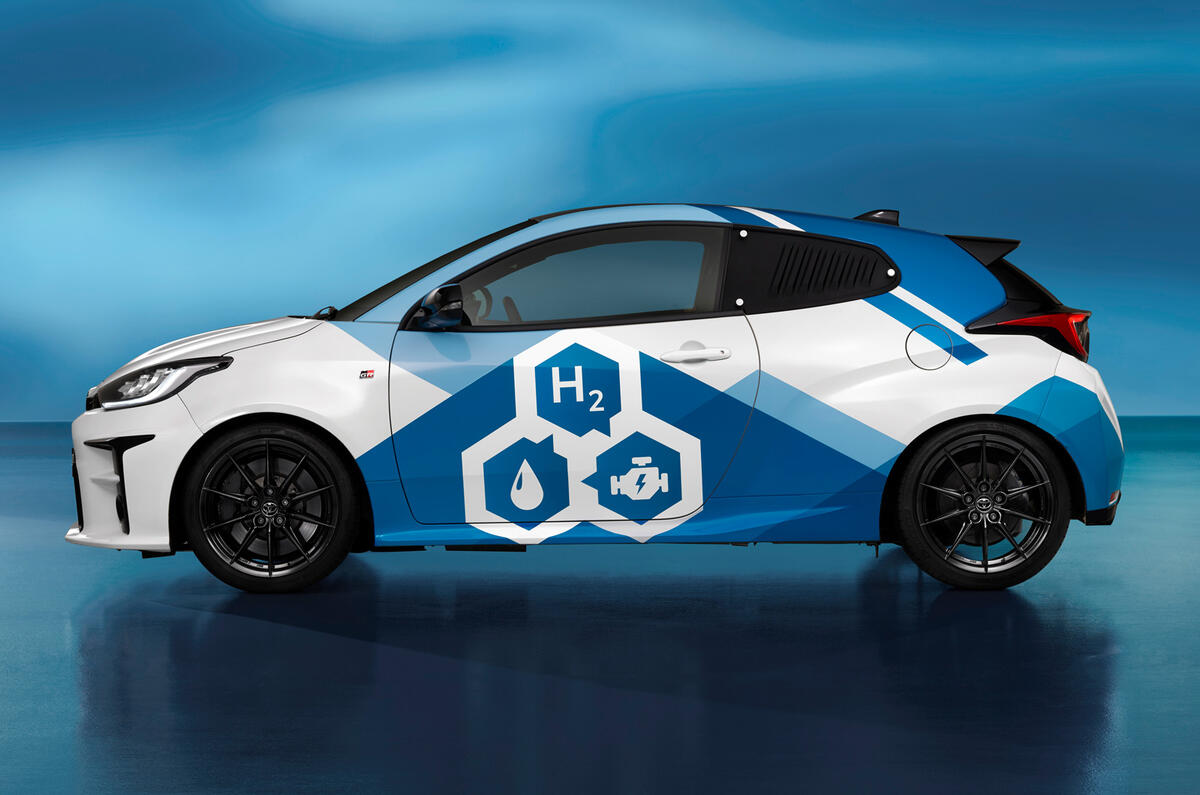
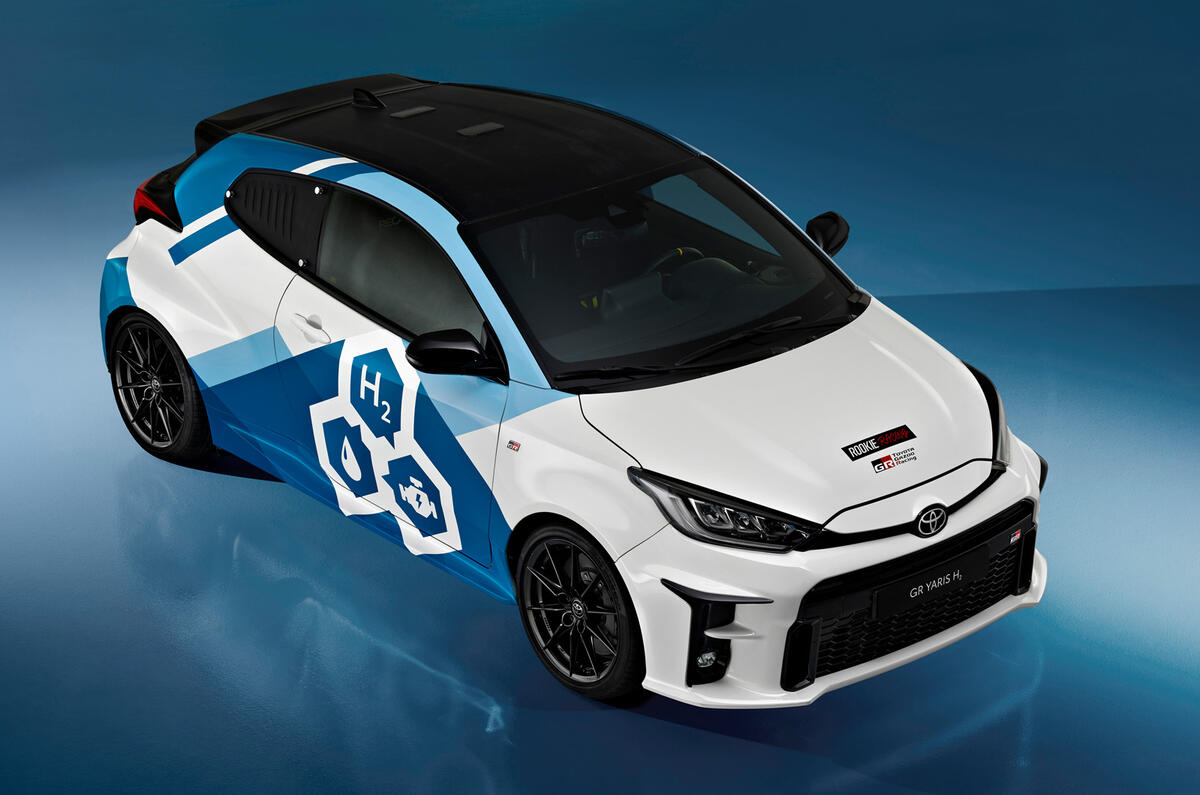






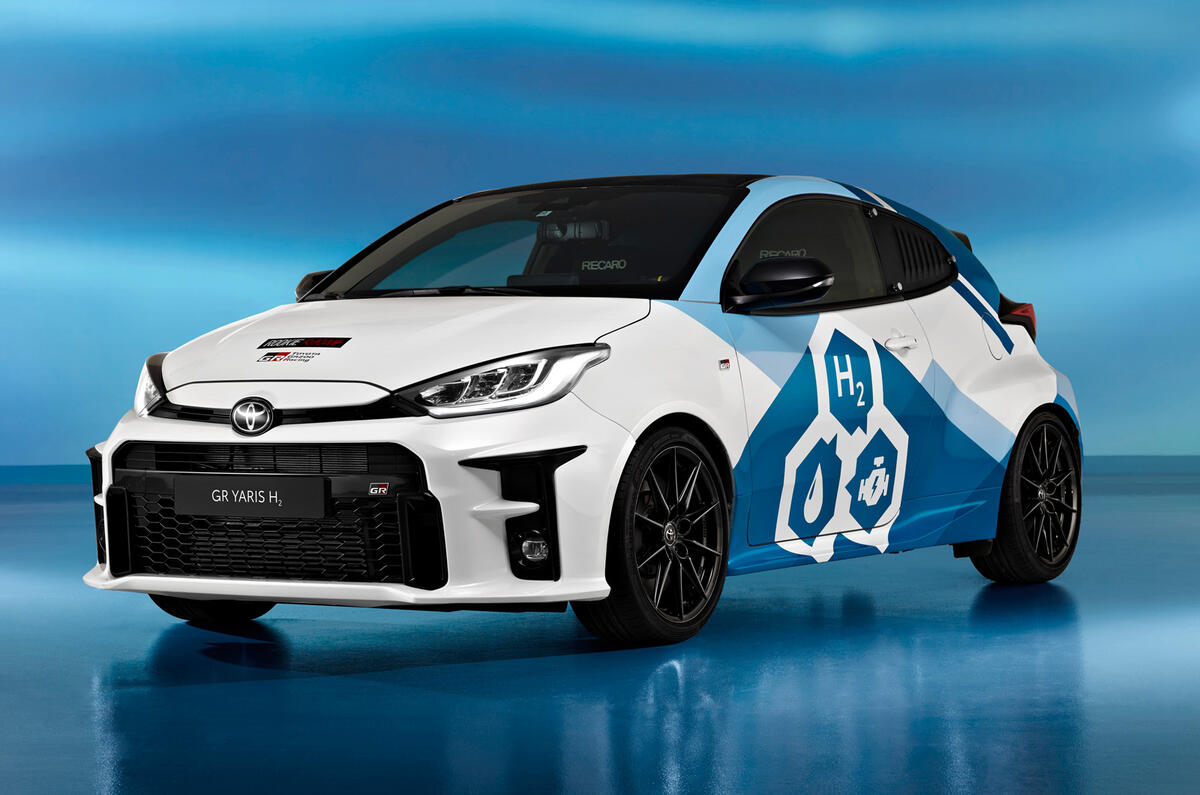

























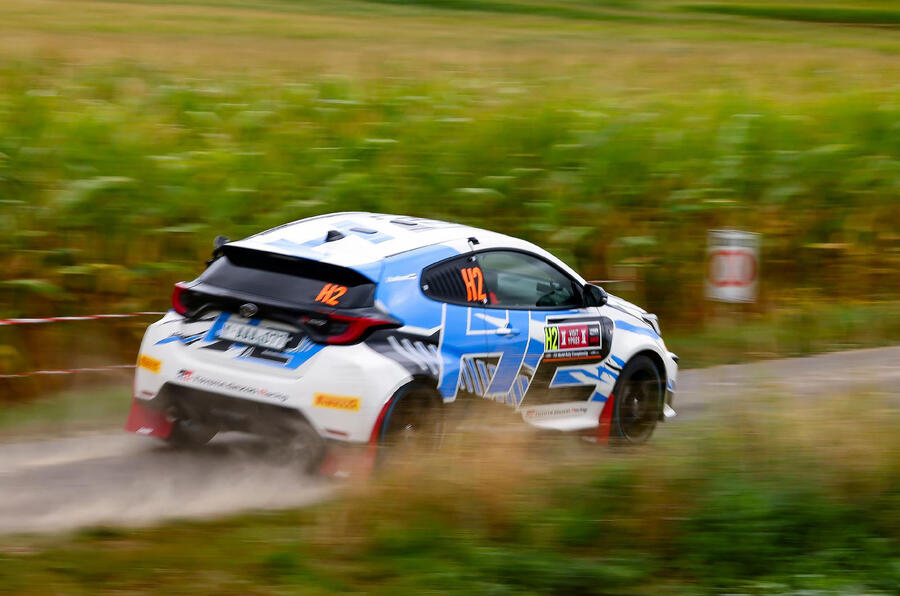





Join the debate
Add your comment
Of course it doesn't make much sense from a cost or efficiency point of view and it is certainly not for volume production, but motor sport is by any measure not a common sense activity. So who carres - I'd much rather watch noisy combustion powered cars revving away than virtually noiseless EVs, and I daresay they are more fun to drive also.
Much the same can be said of the 2-stroke angine, the nitro burning supercharged V8, the world may be cleaner but a cleaner place, but it just isn't quite the same without them. At least a hydrogen fuelled three pot is relatively good clean fun!
The 2 stroke engine was highly successful and there are still plenty of examples of in the motorbike world around the world.
Nothing new here, BMW stopped doing this over 20 years ago when they realised it was a dead end.
I'm liking that various manufacturers are looking at various technologies to clean up emmisions. You never know when there will be a new breakthrough which will turn the industry on it's head - don't put all your eggs in one basket.